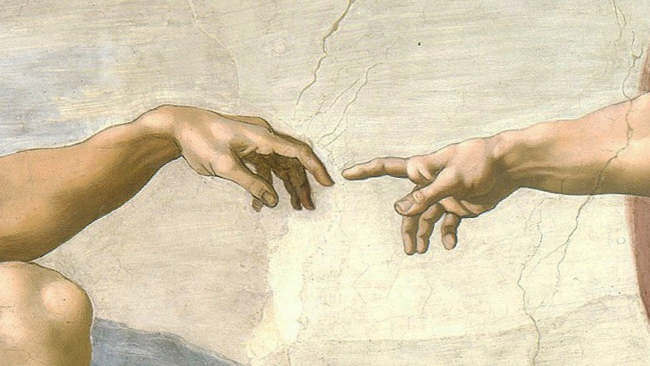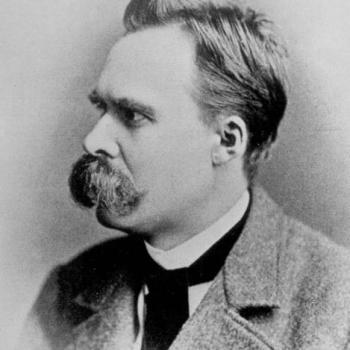
St. Thomas Aquinas famously formulated 5 arguments for the existence of God. Robert H. Nelson has formulated 5 more, reflecting modern modes of thinking.
They have to do with (1) the mystery of why mathematics, a mental construction, applies so completely in the physical world; (2) the mystery of human consciousness; (3) new issues in evolutionary biology; (4) that revolutionary ideas have tended to occur separately but at the same time; (5) the phenomenon of different forms of worship (including the way even non-religious ideologies such as Marxism assume religious forms). These all suggest the existence of a mind behind the universe.
More details on these arguments after the jump. See also Nelson’s book, God? Very Probably: Five Rational Ways to Think about the Question of a God.
Now I’m not sure such arguments, while interesting, get us very far. They don’t get us to the incarnation of this God, or to His act of atonement on the Cross, or to His resurrection from the dead.
Faith is a curious kind of thing,” the conviction of things not seen” (Hebrews 11:1). Faith is a gift. As the great thinker J. G. Hamann said when his friend Immanuel Kant tried to argue him out of his conversion, you can’t argue me out of my faith because I was never argued into my faith. Faith is a kind of revelation, the personal impact of the Word of Law and Gospel, so it’s very real, hard to shake, and yet a different kind of thing than the conclusion of a rational argument.
And yet, I do think apologetics can be helpful in clearing away obstacles and in reminding us all that Christian faith is connected to objective truth.
From Robert H. Nelson, Five Rational Arguments Why God (Very Probably) Exists | RealClearReligion:
The question of whether a god exists is heating up in the 21st century. According to a Pew survey, the percent of Americans having no religious affiliation reached 23 percent in 2014. Among such “nones,” 33 percent said that they do not believe in God – an 11 percent increase since only 2007.
Such trends have ironically been taking place even as, I would argue, the probability for the existence of a supernatural god have been rising. In my 2015 book, “God? Very Probably: Five Rational Ways to Think about the Question of a God,” I look at physics, the philosophy of human consciousness, evolutionary biology, mathematics, the history of religion and theology to explore whether such a god exists. I should say that I am trained originally as an economist, but have been working at the intersection of economics, environmentalism and theology since the 1990s.
Laws of math
In 1960 the Princeton physicist – and subsequent Nobel Prize winner – Eugene Wigner raised a fundamental question: Why did the natural world always – so far as we know – obey laws of mathematics?
As argued by scholars such as Philip Davis and Reuben Hersh, mathematics exists independent of physical reality. It is the job of mathematicians to discover the realities of this separate world of mathematical laws and concepts. Physicists then put the mathematics to use according to the rules of prediction and confirmed observation of the scientific method.
But modern mathematics generally is formulated before any natural observations are made, and many mathematical laws today have no known existing physical analogues.
[Keep reading. . .]
Detail from the Creation of Adam, The Sistine Chapel, Rome by Michelangelo Buonarroti [Public domain], via Wikimedia Commons


















